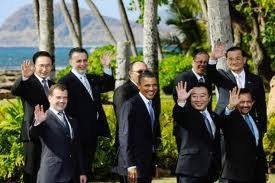
Practical information
Seminar with Ryo Sahashi, Associate Professor, Kanagawa University and Fellow with JCIE (Japan Center for International Exchanges), Marie-Orange Rivé-Lasan, Professor, University Paris Diderot and Alice Ekman, Associate Research Fellow, Center for Asian Studies, Ifri.
Chair: Françoise Nicolas, Director, Center for Asian Studies, Ifri.
In 2012, new political leadership has been taking root throughout the Asia-Pacific. While general elections were held in South Korea in April, a new President will step up in December. In Pyongyang, the anniversary of the nomination of Kim Jung-un as Supreme Leader will be celebrated at the end of the year. Last March, a presidential election was held in Russia while this November voters will go to the polls in the United States (Nov 6th) and a once-in-a-decade leadership change is expected in China (Nov 8th). Meanwhile, Japan"s government is suffering from low popularity and general elections are looming. What implications will these leadership changes have on regional stability in East Asia? This seminar will provide elements to understand the context of political transition in various countries in the region and how political change could shape the regional order.
The seminar will be held in English.
Speakers
Other events

From Ambition to Action: Exploring Technological Partnerships with India
The 16th EU-India Summit, held on January 27th in New Delhi with European leaders António Costa, Ursula von der Leyen, and Prime Minister Narendra Modi, marks a significant milestone in deepening EU-India relations. At the same time, official bilateral visits from EU member states are on the rise, including that of the French President, who visited India in February to participate in the Artificial Intelligence Summit. As India asserts its technological ambitions and seeks to reduce its dependence on China, Europe is stepping up its efforts to diversify its strategic partnerships.

The Enlargement of the European Union: A Strategic Choice? France, the Western Balkans and the EU in an Uncertain Geopolitical Context
Russia’s war against Ukraine has brought the enlargement of the European Union back to the centre of European strategic debates. In this context, the Western Balkans have regained heightened visibility in discussions on the continent’s security, at a time when the international environment is marked by a growing number of destabilising factors.








